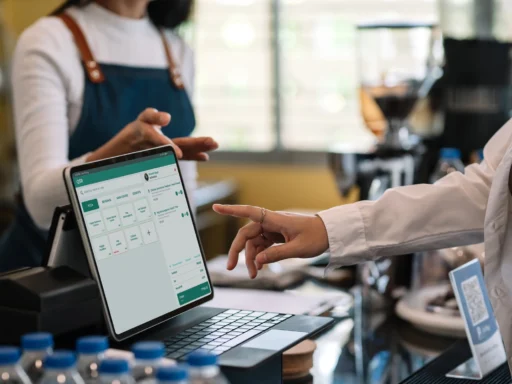Owning a restaurant is often described as a labor of love, but the reality can quickly become overwhelming. Restaurant owners are typically known for their passion and dedication, juggling multiple roles to keep their business running smoothly. However, attempting to manage every aspect of the restaurant alone can lead to burnout, inefficiency, and stifled growth. Here’s why delegation and outsourcing are crucial for restaurant success.
The Multitasking Trap
It’s common for restaurant owners to wear many hats—from chef to cashier to marketer. While this hands-on approach may seem necessary in the beginning, it can easily lead to a chaotic environment where crucial tasks fall through the cracks. Trying to do it all often results in longer hours and increased stress, making it difficult to maintain a healthy work-life balance.
Instead of fostering an environment where creativity and strategic planning can thrive, the owner can find themselves bogged down by day-to-day operations. This multitasking trap can stifle innovation and slow down growth.
“The hardest part about being a restaurant owner is that you can’t be everywhere at once. You have to trust your team to make things happen.” – Jane Doe, Owner of The Flavorful Spoon
Burnout is Real
The pressure of managing every aspect of a restaurant can take a significant toll on an owner’s mental and physical health. Burnout is not just about feeling tired; it can lead to feelings of hopelessness, decreased motivation, and even serious health issues. When an owner is stretched too thin, they may struggle to provide the level of service and quality that their customers expect, damaging the restaurant’s reputation.
“I thought I could handle everything myself, but I learned the hard way that it’s okay to ask for help. My health—and my business—depends on it.” – John Smith, Owner of Culinary Delights
Recognizing the signs of burnout is crucial. If you’re feeling constantly exhausted, overwhelmed, or detached from your work, it may be time to consider how you can lighten your load.
The Power of Delegation
One of the most effective ways to combat burnout and improve efficiency is through delegation. Entrusting tasks to capable employees allows the owner to focus on the strategic priorities of the restaurant. Here are some areas where delegation can make a significant impact:
- Staff Management: Hire a reliable manager to oversee daily operations. This frees up the owner to focus on long-term goals, such as expanding the menu or planning special events.
- Marketing: Consider outsourcing marketing efforts to professionals who can create targeted campaigns that reach the right audience, whether through social media, local advertising, or special promotions.
- Accounting and Finances: Hire an accountant or use accounting software to handle finances. This ensures accuracy in bookkeeping and allows owners to concentrate on revenue-generating activities.
- Customer Service: Train staff to handle customer inquiries and complaints effectively. Empowering your team can lead to better service and a more positive customer experience.
“Delegating tasks not only eases my burden but also empowers my team to take ownership. It’s a win-win.” – Emily Johnson, Owner of Bistro Bliss
Outsourcing for Efficiency
In addition to delegation, outsourcing specific functions can further lighten the load. For example:
- Catering and Events: If your restaurant offers catering services, consider partnering with a catering company that specializes in events. This allows you to expand your offerings without stretching your resources too thin.
- Food Delivery: Utilizing third-party delivery services can save time and effort, allowing your team to focus on in-house dining experiences.
- Social Media Management: Hire a social media expert to manage your online presence. This can increase your reach and engagement without taking time away from running the restaurant.
“Outsourcing my social media management was a game-changer. Now I can focus on what I love—cooking and serving my customers.” – Mark Lee, Chef and Owner of Savory Eats
Fostering Growth and Innovation
When restaurant owners learn to delegate and outsource, they create space for growth and innovation. With a lighter workload, owners can focus on strategic initiatives, such as expanding their menu, improving customer experiences, or exploring new market opportunities. This shift in focus can lead to fresh ideas and innovative practices that keep the restaurant relevant and competitive.
Moreover, a well-delegated team often leads to increased employee satisfaction. When team members feel empowered to take ownership of their roles, they are more likely to contribute creatively and work collaboratively toward the restaurant’s success.
“When I stepped back and let my team shine, I discovered new ideas and energy I never expected. It’s all about collaboration.” – Sophia Green, Owner of Taste of Tradition
Conclusion
Running a restaurant is a demanding endeavor, and attempting to manage every aspect alone is a recipe for burnout. By embracing delegation and outsourcing, restaurant owners can lighten their load, reduce stress, and foster an environment of growth and innovation. It’s essential to recognize that success isn’t solely about hard work; it’s also about smart work. When owners focus on strategic priorities while empowering their teams, they position their restaurants for long-term success in an ever-evolving industry.
In the end, the goal is not just to keep the doors open but to thrive in the vibrant world of hospitality. So, take a step back, assess your workload, and consider where you can share the responsibility. Your restaurant—and your well-being—will thank you for it.






